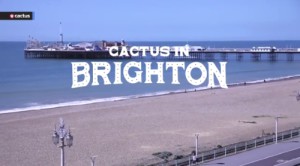Des milliers de personnes souhaitent parler anglais à travers le monde. Savoir combien de temps est nécessaire pour apprendre l’anglais est donc un sujet populaire et pertinent.
De nombreux facteurs influencent le temps qui vous est nécessaire pour apprendre l’anglais, parmi lesquels :
1. Votre exposition quotidienne à l’anglais
Vous apprendrez l’anglais rapidement si vous y êtes exposé quotidiennement, toute la journée, en vivant, travaillant, étudiant ou voyageant dans un pays anglophone par exemple. Suivre un cours d’anglais dans un pays anglophone est la meilleure façon d’apprendre l’anglais rapidement, puisque vous recevrez un enseignement dans cette langue et serez immergé dans la langue et la culture locale tous les jours en dehors de la salle de classe.
Si vous ne pouvez pas suivre un cours d’anglais à l’étranger, essayez de vous immerger chez vous le plus possible dans la langue. Si vous pouvez dédier une heure ou deux chaque jour à l’étude de l’anglais, votre niveau s’améliorera beaucoup plus rapidement que si vous n’y consacrez qu’une heure ou deux chaque semaine. Suivre un cours du soir d’anglais un jour par semaine et compléter cela par un auto-apprentissage chez vous avec des journaux, des films, la radio ou la télévision en anglais est une bonne idée.
2. L’âge auquel vous commencez à apprendre l’anglais
Vous pouvez commencer à apprendre l’anglais à n’importe quel âge. Cependant, les enfants sont avantagés puisque leur cerveau se développe encore et qu’ils démontrent une capacité naturelle pour les langues. Ils apprendront l’anglais rapidement et développeront une prononciation authentique, sans l’inhibition qui nous gêne généralement en tant qu’adultes. Si vous commencez tôt, vous avez plus de chances d’apprendre l’anglais plus vite. Mais ne vous laissez pas décourager par cela si vous devez apprendre l’anglais lorsque vous êtes adulte. Avec le bon enseignement, le bon état d’esprit et en s’impliquant, vous pouvez apprendre l’anglais à tout âge !
3. Si vous parlez d’autres langues
Si vous parlez déjà une seconde ou une troisième langue, cela vous aidera à apprendre l’anglais plus rapidement. Votre cerveau sera déjà habitué au processus d’apprentissage d’une langue, et vous aurez une meilleure compréhension de la grammaire et des temps. Vous apprendrez l’anglais encore plus rapidement si cette seconde langue est une langue germanique ou romane, qui sont proches de l’anglais. La maîtrise d’une langue scandinave (suédois, norvégien, danois) or romane (français, espagnol, italien) accélèrera votre progrès en anglais.
4. Le niveau de maîtrise que vous souhaitez atteindre en anglais
Bien entendu, apprendre seulement les bases de l’anglais sera beaucoup plus rapide que de savoir parler couramment la langue. Certains étudiants ont seulement besoin d’atteindre un niveau intermédiaire (B1) pour communiquer, d’autres un niveau B2 (communication commerciale basique, études de premier cycle universitaire), ou un niveau C1 (master ou doctorat, enseignement de l’anglais, journalisme international). Plus les objectifs sont élevés, plus il vous faudra y consacrer du temps et de l’énergie.
Plus le nombre d’heures que vous consacrez à cet apprentissage est élevé, plus vite votre niveau s’améliorera. En débutant l’anglais sans aucune connaissance préalable, il vous faudra peut être 10 ans pour atteindre le niveau B2 (avancé) en anglais avec deux heures par semaine. Vous pouvez atteindre le même niveau en un an avec 25 heures par semaine.
5. La vitesse à laquelle vous apprenez
Chacun d’entre nous apprend de manière différente et à une vitesse différente. Vous connaissez probablement votre rythme d’apprentissage et votre aptitude pour les langues. Ne vous découragez pas même si vous trouvez les langues difficiles, cela ne devrait pas vous empêcher d’apprendre l’anglais, qui se révélera être gratifiant et sera une langue utile. Trouvez la méthode qui vous permet d’apprendre le plus facilement et faites en un jeu, en regardant des films en anglais, en lisant des magazines anglais, en jouant des jeux anglais, ou en notant dans un cahier les nouveaux mots anglais que vous découvrez.
Enfin, les professeurs d’anglais savent trouver des solutions pour stimuler tous les types d’étudiants dans une salle de classe, et un cours d’anglais est certainement la meilleure façon de faire des progrès, quelque soit votre type d’apprenant.
Bonne chance et prenez plaisir à apprendre l’anglais !
Si vous trouvez cet article intéressant « Combien de temps faut-il pour apprendre l’anglais », lisez notre article « Comment apprendre l’anglais plus rapidement ».
Pour davantage de renseignements et de conseils concernant les cours d’anglais, merci de contacter Cactus. Cactus dispose de quinze ans d’expérience dans l’organisation de cours d’anglais à travers le monde pour tous les âges et tous les budgets, parmi lesquels des cours d’anglais général, des cours d’anglais commercial, des cours privés d’anglais, des cours de préparation aux examens d’anglais, des cours d’anglais pour enfants et adolescents, des programmes universitaires en anglais à l’étranger, et bien plus.
www.cactuslanguage.com
Traduit par Teva Serna























